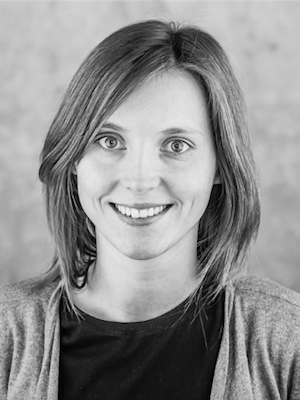
Google the word productivity, and you’ll find millions of search results on how to become more productive. But what does being productive truly mean? How do you know when your day has been productive and when you’ve merely been busy? We asked entrepreneurs to finish the sentence “I know my day has been productive when…”
Here’s what they said.
1. ‘I’ve met tomorrow’s deadlines.’
Deadlines can either motivate or make people anxious. If you’re the latter, you’ll agree with Nate Masterson, CMO of Maple Holistics, who believes being productive means meeting your deadlines ahead of time.
”It’s not fun to be restless all night knowing that there’s something urgent to attend to in the morning. The earlier you get time-pressing assignments done, the better you’ll feel,” he says. To make sure you feel productive on a daily basis, try this: Eat the frog every morning. (Reference: Eat That Frog!: 21 Great Ways to Stop Procrastinating and Get More Done in Less Time)
Do the worst task first in the morning. That can be a complicated assignment, a task with a tight deadline – you name it. ”I block out the first three hours of my day to focus on my hardest task. Morning is when I’m able to think the clearest and have laser-like focus to get the most important tasks done,” reveals Stacy Caprio, founder of Growth Marketing.
2. ‘I’ve answered all my emails.’
It’s estimated company CEOs receive up to 500 emails a day–a crazy amount of messages to be read and processed.
For many entrepreneurs, a day has been productive if, among other tasks, they’ve managed to empty their inbox. That allows them to leave the office with the peace of mind that they haven’t missed anything important.
Here are two tactics that will help you keep your inbox empty:
Inbox Zero
Inbox Zero is an approach that aims to keep your inbox (almost) empty at all times. Davis Siksnans, CEO of Printful, receives 50-120 emails a day and uses this tactic to keep his inbox under control. For beginners, he recommends a tool called The Email Game. ”It forces you to deal with every email – either delete, delegate, reply or defer. It discourages you from moving forward to the next email until you haven’t handled the previous one,” he explains.
Two-minute Rule
The two-minute rule says: If you can take care of the email–reply, forward, take action–in two minutes or less, then do it. If an email needs more time to handle, put it in a separate folder and deal with it later. ”To stay organized, I use over 20 different folders. Every email that hits my inbox, I immediately move it to a specific folder to make sure it doesn’t get overlooked,” says Matthew Ross, COO of The Slumber Yard.
3. ‘I’ve spent my time on tasks that bring value to the company.’
The 80/20 rule states: 80% of results come from 20% of actions. Several entrepreneurs admit that they call a day productive if they’ve managed to spend most of their time on 20% of the tasks that bring the most value to the company.
”There are days when you’re busy, and yet you feel you haven’t really done anything. That’s probably because you’ve been wasting your time on things that, in the long-term, bring little value to the company,” explains Artis Rozentals, CEO of DeskTime.
Here’s how to focus on tasks that matter:
- Track your time: It can help you discover your unproductive habits and do something about them, like block distracting websites. Once you’ve eliminated distractions, use a time tracking system to keep yourself on track. If you want to spend 80% of your workday on tasks that matter, regularly check your daily reports to make sure you reach your goal.
- Use the Pomodoro technique: Another way to keep your focus on tasks that bring value is to use the Pomodoro technique. ”You set up small blocks of time where you focus 100%. No phone, no extra tabs, no distractions. You set a timer and when it goes off, you walk away from your computer and rest for a few minutes,” explains Paul Ronto, CMO of RunRepeat.
4. ‘I’ve made progress on a large project.’
Large projects make people procrastinate, and C-level executives are no exception. They, however, admit that getting the ball rolling makes them feel productive. ”I know that my day has been productive when I reflect on my long-term goals and see that I’ve made progress on them,” says Jason Patel, the founder of Transizion.
How to make progress every day?
Split your big projects into smaller tasks Splitting your time-consuming projects into smaller tasks:
- makes them look less frightening
- allows you to track progress in a very visible way; whenever you tick something off, you know you’re a step closer to finishing it
According to Nate Masterson, this approach is also a good way to get into a continuous workflow: ”Ironically, putting more tasks on your to-do list can make you more productive. If you include small tasks on your list as well, you’ll get to check off things more frequently and you’ll, therefore, be more motivated to make your way through the whole list.”
5. ‘I’ve ticked off all my to-do’s’
A majority of entrepreneurs admit they judge their productivity by how many tasks are left undone. They also say that completing all their daily tasks allows them to leave the office with a distraction-free mind.
To make sure you leave work with nothing left on your to-do list:
- define your priority tasks for the day
- start your morning by reviewing 3-5 tasks for the day, then focus your energy on completing them
”Owning a business means there are tons of things that come at you every day, but I always keep a daily list of three most important things that absolutely need to be done,” says Nenad Cuk, CEO of CroatiaTech.
Just remember: for this tactic to work, you must prioritize your tasks and make sure that what you put on your daily list can actually be finished in one day.
Krista Krumina is a writer, traveler, and co-founder of Truesix Co, a content marketing agency that helps local brands get international attention. She’s written for NY Observer, Thrive Global, The Muse, and many others. Krista covers tech, entrepreneurship, and productivity. She also works with the Draugiem Group, a group of startups that includes Printful, DeskTime, and other tech startups.
© YFS Magazine. All Rights Reserved. Copying prohibited. All material is protected by U.S. and international copyright laws. Unauthorized reproduction or distribution of this material is prohibited. Sharing of this material under Attribution-NonCommercial-NoDerivatives 4.0 International terms, listed here, is permitted.













